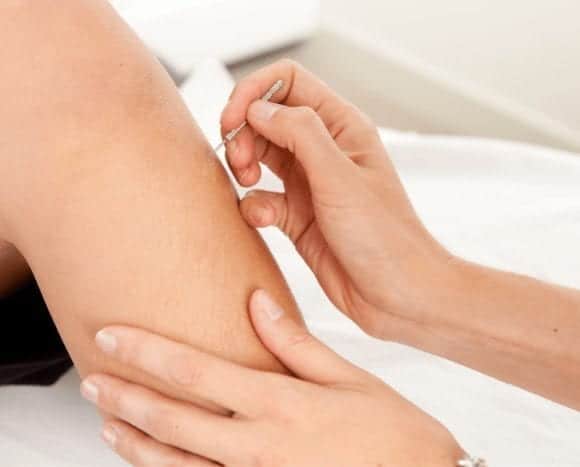Restless Leg Syndrome, also known as Ekbom Syndrome, can affect anyone, but it seems to most commonly affect women past the age of fifty. About ten percent of the population of the United States and Europe suffer from some degree of this condition. There is no specific known cause of RLS, but it is thought to possibly be genetic. Restless Leg Syndrome involves strong urges to move the to alleviate sensations in them like pins and needles, aching, or a “prickly” feeling. This uncontrollable urge can interrupt sleep, distract from daily tasks, and cause general discomfort. RLS can be a solitary ailment, but has been connected to several conditions. It is not uncommon for pregnant women to develop symptoms of RLS, but these symptoms usually dissipate about four weeks after labor. People with anemia are also susceptible to RLS due to their low iron levels, but once this is corrected, their RLS improves
TCM Approach to Treating Restless Leg Syndrome
RLS is a sign of poor blood circulation in the legs, and a history of smoking, lack of exercise, or diabetes could be contributing factors. Some painless, side effect free treatments include a diet low in sugar, as well as a juice combining carrot, celery, and spinach. A lack of iron in one’s diet is thought to exaggerate symptoms of RLS. Traditional Chinese medicine believes that the cause of Restless Leg Syndrome is heat in the Heart, which is thought to cause agitation in one’s spirit, and can lead to restlessness during sleep.
In TCM, the spirit is referred to as the Shen, and it is believed to be stored in the Heart. In traditional Chinese medicine, each organ is believed to be sensitive to one unique type of weather: while the Heart wants to feel warm, it should not feel hot. The theory of Zang-Fu (“internal organs”) holds that the Kidneys are the source of yin and yang in the body. When Kidney yin is low, it means that the body is susceptible to heat, contributing to the Heart’s discomfort (and therefore the Shen’s), and can lead to restless legs.
Herbal Remedies and Dietary Adjustments in TCM
Herbal remedies can be recommended to help the Kidneys, Heart, and Shen, and this can in turn relieve the uncomfortable sensations of Restless Leg Syndrome. Two of the more common herb formulas that are recommended are RopinoHerb RLS and RopinoHerb PLMD. PLMD is an abbreviation of Periodic Limb Movement Disorder, which is a similar condition to RLS, but occurs most often during sleep (while RLS can happen during the day as well) and involves the cramping or involuntary movement of the legs and arms. About 80% of people with RLS also have PLMD, but the reverse is not true.
Are you interested in becoming a certified acupuncture professional?
Visit the links below to explore our specialized acupuncture programs at a campus near you:
Acupuncture and Moxibustion for RLS Management
Nutritional supplements that include Vitamin E, calcium, magnesium, and folic acid have also been proven to improve symptoms of RLS. Another TCM treatment for restless legs is acupuncture. Acupuncture treatments have proven effective in patients with arthritis, and are believed to also stimulate those parts of the brain that are involved in RLS. Moxibustion, an ancient TCM practice, can also help to control RLS symptoms. Moxibustion is the utilization of the mugwort herb, or “moxa,” to stimulate the points on the body used during acupuncture. Stimulating these points can help to energize or align one’s qi, and also can induce a smoother blood flow, which will reduce the urges of Restless Leg Syndrome.
Sources
EMedicne:http://www.emedicinehealth.com/periodic_limb_movement_disorder/article_em.htm
Herb China:http://www.herbchina2000.com/therapies/NRL.shtml
Featured Posts:

